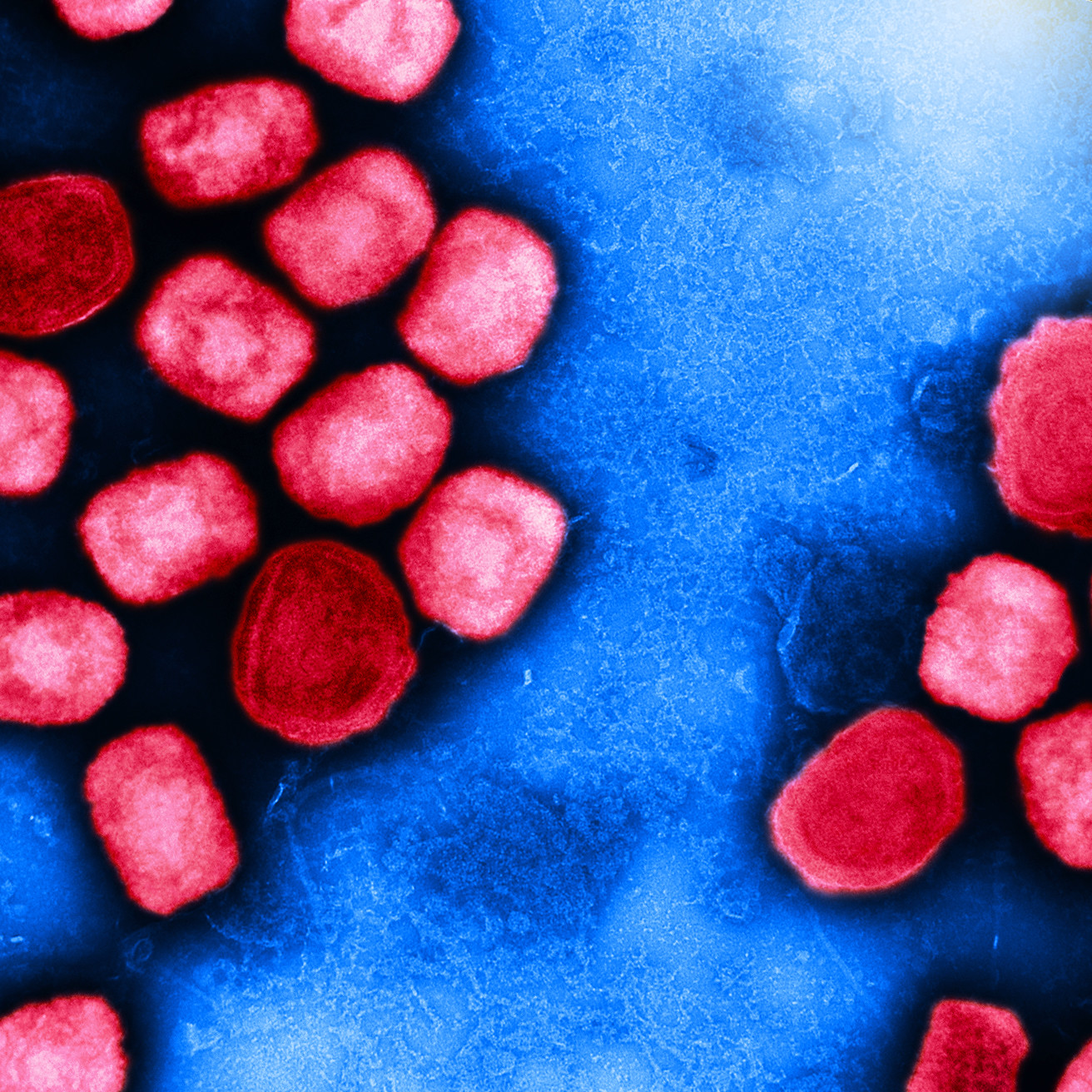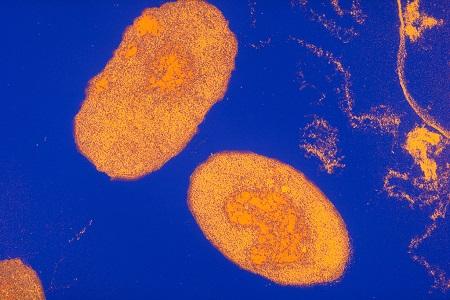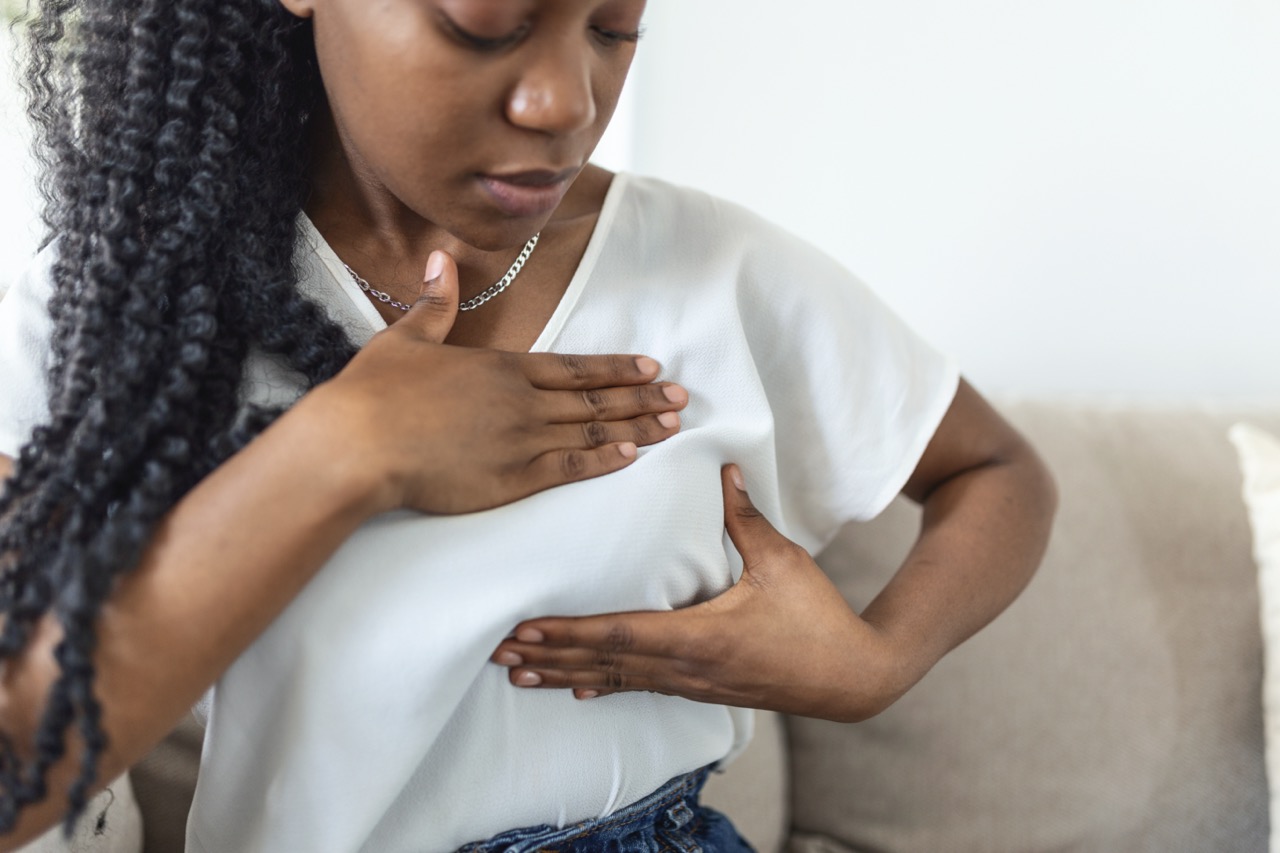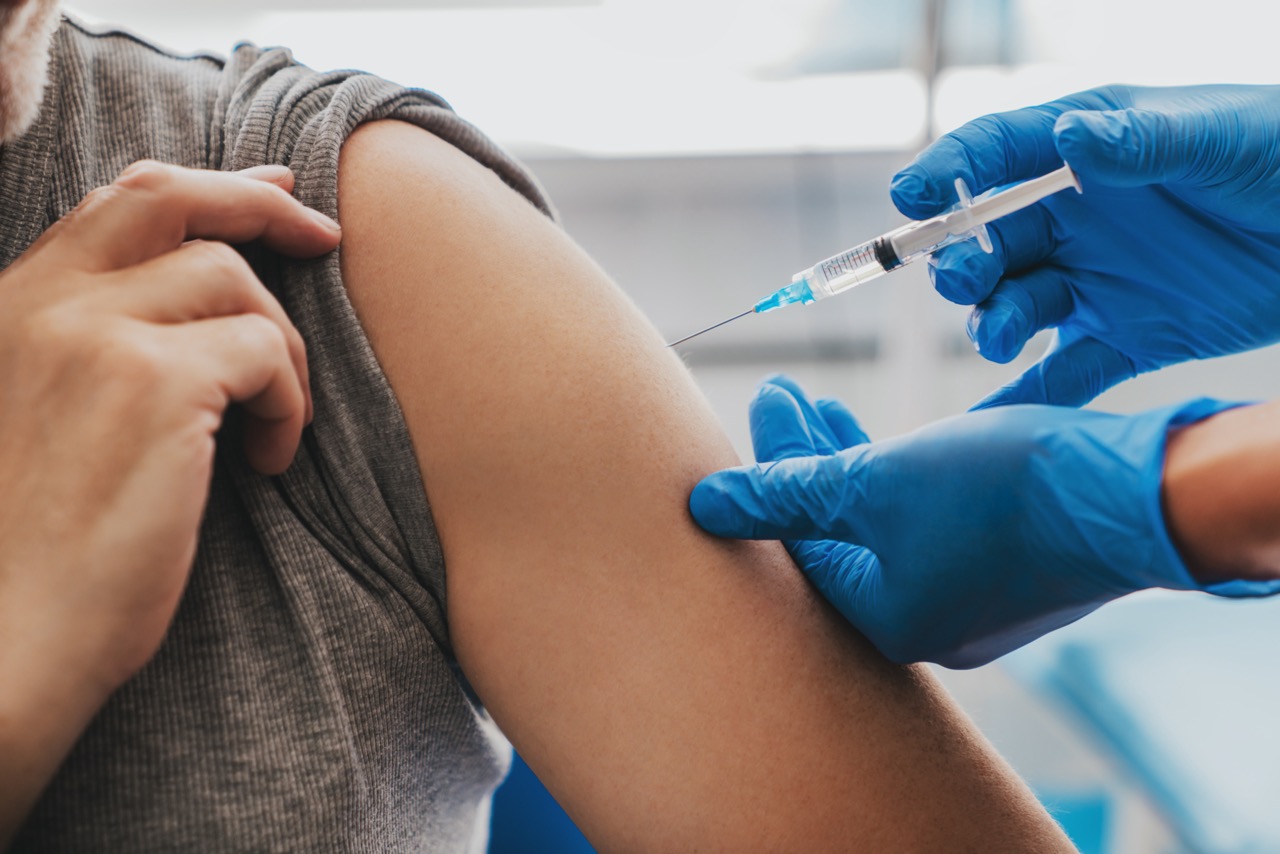After two-and-a-half years of living with COVID-19, many of us carry a sense of dread when the temperatures drop. Will winter coronavirus, colds, flus, and other infections rise as we gather in smaller spaces for longer periods of time? In a word: Yes.
But fear not. Vaccinations work to keep infection rates lower for many pathogens, and they may also help make diseases less severe and death rates lower. The federal Centers for Disease Control and Prevention puts it bluntly: “The CDC recommends COVID-19 vaccines for everyone ages 6 months and older, and boosters for everyone 5 years and older, if eligible.”
To determine whether you are medically eligible for a COVID shot or any other vaccine, please consult a health-care provider. (Most people can get vaccines without any problems.)
As of October 7, 76.3 percent of the Charlottesville population has had at least one dose. Albemarle County has surpassed that level at an 87.9 percent rate. Ryan McKay, director of policy, planning, and COVID-19 operations for the Blue Ridge Health District, says the district has one of the highest vaccination rates in the state.
Free vaccines are available in doctors’ offices, pharmacies, and through BRHD. To schedule an appointment, visit vdh.virginia.gov/blue-ridge/covid-19-vaccination or vaccinate.virginia.gov. Sometimes an administration fee is charged, so ask ahead.
The BRHD underestimated how bad last winter’s COVID transmission rate would be—the omicron variant emerged and the vaccine didn’t fight it. This fall, the new bivalent vaccines protect against both the original strain of COVID and the two current omicron variants.
McKay encourages everyone to get the initial two COVID shots or their boosters when they are due, plus the seasonal flu shot—at the same time, if desired. They are given as two shots, not a combined shot.
Patrick Jackson, M.D., an assistant professor in the UVA Division of Infectious Diseases & International Health, says October is a good month to get these two vaccines, so you can “build antibodies before flu starts circulating” and “combination is perfectly fine.”
The strict COVID recommendations of 2020 have softened nationwide and locally. “COVID vaccination is less of a front burner issue now, because of the reduction in the number of transmissions, and the moderated-disease transmission,” says Phil Giaramita, Albemarle County Public Schools strategic communications officer. “We are not in a position to require or collect vaccination data on our employees or among students—student data is blended into the state COVID information registry.” Nonetheless, employees of ACPS have a vaccination rate of more than 90 percent, teachers most of all.
UVA’s COVID health and safety policy, updated for the fall 2022 semester, says, “All students, full-time and part-time UVA faculty and staff, including those working remotely, are strongly encouraged to receive their primary series of COVID-19 vaccine and booster doses when eligible per CDC guidance.”
Despite vaccination progress, the September 30 UVA COVID-19 Modeling Weekly Update predicts another possible surge this December. “It is critical that Virginians get boosted this fall. Models suggest that a bivalent booster campaign could prevent 150,000 cases by March.”
Jackson recommends reviewing your vaccine history with your health-care provider: “Vaccine reviews should be part of your regular health evaluation,” he says.
Besides the COVID vaccine, there is a new vaccine for monkeypox, which can cause a painful though usually not fatal infection. Monkeypox and many vaccines are given throughout the year, as needed, as are booster shots for certain vaccines.
A healthy dose
Before you panic about another possible winter COVID surge, take a look at our guide to vaccines to consider this fall and beyond. Please consult a medical expert with any questions before you get vaccinated.


COVID-19 vaccines and boosters
Who should get these? Everyone 6 months and older who is eligible—ask your health-care provider or health department.
How often? The VDH says, “The first two doses of Pfizer-BioNTech or Novavax vaccine should be given at least three weeks (21 days) apart and the first two doses of Moderna vaccine at least four weeks (28 days) apart.” Do not get the second dose earlier than recommended. The Janssen/Johnson & Johnson vaccine is a single first dose only authorized for use now in certain situations.
An extended interval option may work for individuals 6 months of age and older based on an individual’s risks and benefits. A longer (up to eight-week) interval may be optimal for some people, especially for males ages 12 to 39 years. Talk to your health-care or vaccine provider about the timing of the second shot.
According to the U.S. Food and Drug Administration, those 18 years and older can have a single booster of the Moderna bivalent if it has been at least two months since their primary vaccination or if they have received the most recent booster dose with any approved monovalent COVID-19 vaccine (the first booster shot that was available).
For the Pfizer bivalent, those 12 years and older are eligible for a single bivalent booster dose under the same two-month circumstances.
For more information, go to vdh.virginia.gov/covid-19-vaccine.
Seasonal flu vaccine
Who should get this? The CDC says everyone over the age of 6 months, to protect as many as possible. Those 65 and older likely will receive the high-dose seasonal flu shot that the CDC recommends.
When? Once a year, about this time of year (October). Flu activity peaks from December to February.
According to the CDC, this annual vaccine is made to protect against the most common strains, year to year. This vaccine can be given along with the updated COVID bivalent vaccine.
Monkeypox vaccine
Who should get this? People who have sex with multiple or anonymous partners are currently at the highest risk for monkeypox. The VDH says that avoiding these activities greatly reduces your chance of catching or spreading monkeypox.
When? Now, if you are at risk or know you have been exposed to someone with the disease.
Anyone can get and spread monkeypox, which is transmitted by close contact with an infected person. Close contact includes sex or intimate contact, hugging, kissing, cuddling, massage, touching skin lesions, bodily fluids, or clothing, towels, and linens that have been in contact with an infected person. Spread can also occur during prolonged face-to-face contact.
Tetanus/DTaP vaccine
Who should get this? Jackson says this is an overlooked vaccine. It is recommended for all ages, and, according to Jackson, pregnant women should also get the shot to help confer immunity in a fetus to fight whooping cough (pertussis). The Mayo Clinic recommends the shot between 27 and 36 weeks of pregnancy.
When? During childhood, and every 10 years thereafter.
The DTaP vaccine works against diphtheria, tetanus, and whooping cough infections. Diphtheria is caused by a poison produced by a bacterium, and it can be deadly. Tetanus is caused by a bacterium usually when a wound is infected by contaminated soil, dust, rust, or
animal or human feces. Diphtheria and tetanus are rare in the U.S. because of vaccination. Whooping cough is more common.
Other vaccines
Newer formulations include the Shingrix vaccine for shingles (two doses two to six months apart for those aged 50 and up) and two new pneumonia vaccines: PCV15 (Vaxneuvance) and PCV20 (Prevnar 20) for those older than 65 and younger people at high risk because of a weak immune system or a chronic medical condition.
Keeping abreast
A quick word about women who still need to get an annual mammogram: Don’t let having a recent COVID or seasonal flu vaccine stop you from getting your annual mammogram. In early COVID vaccine days, the guidance was for women to wait about six weeks after a COVID or flu shot because vaccine material was attacked by enlarged lymph nodes. Enlarged lymph nodes, however, are also a possible sign of cancer.

“Many women came in shortly after their first vaccinations, and we were seeing higher rates of enlarged lymph nodes,” so the six-week wait time began, said Lisa Vick, team coordinator for mammography at Martha Jefferson Hospital. “We no longer want patients to delay their care.” Vaccination questions are asked and recorded, but vaccines should not postpone mammograms, she says.






